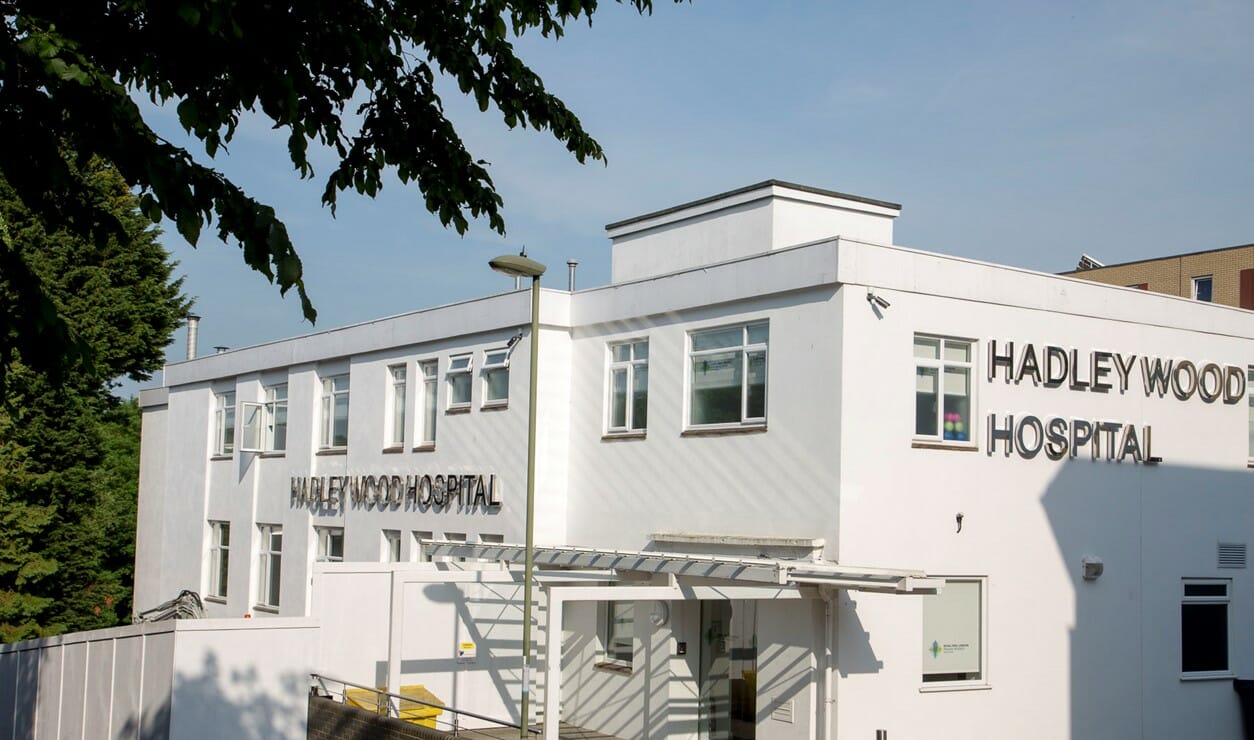Salivary gland surgery

Our private Salivary gland surgery services are provided at the Hadley Wood Hospital, High Barnet.
To find out more about our hospitals click here:
Salivary gland surgery can be performed for a number of reasons, including a blockage within one of the glands, problems with saliva production, or to remove lumps or tumours that may develop in one or more of the glands.
Do I need salivary gland surgery?
We each have a set of salivary glands, located throughout the mouth and throat area. The main ones are beneath either side of the jawbone (the sub-mandibular glands), at the sides of the face in front of the ears (the parotid glands), and underneath the tongue. They play a vital role in keeping the mouth and throat moist and helping start the process of breaking down food before it enters the stomach. Saliva can be important for oral hygiene too.
Problems can occur with saliva production for a range of reasons – often common factors, such as dehydration and side-effects of certain medication can lead to a ‘dry mouth’ – but surgery is only generally required if problems exist within the salivary glands themselves.
For example, as with other areas in the body, small stones can develop in salivary glands, which are mostly a build-up of crystalized salivary deposits. You may sometimes be able to see these beneath your tongue, and they can cause pain, swelling and sometimes infections can develop. The stones can sometimes pass out of the gland themselves, or with some slight manipulation, but surgery may be required if somebody is experiencing chronic or severe problems. Tumours and cysts can also develop in salivary glands, which usually present as a lump or swelling. These are often benign although can also be cancerous, so surgery to remove them is usually advised.
The procedure
Salivary gland surgery is carried out under general anaesthetic, meaning you will be asleep during the procedure. The exact technique used will depend on which glands are being operated on. In some cases, the glands will be accessed through the mouth, but operating on the sub-mandibular and parotid glands will require incisions to be made on the neck and/or near the ear. How much tissue is being removed will depend on what’s required – your consultant will discuss this with you beforehand. Sometimes, the whole gland will be removed.
You should be able to leave hospital the next day, but won’t be able to drive for at least 24 hours, until the effects of the anaesthetic have completely worn off. Eating and drinking may be difficult for a few days afterwards – although it’s very important to keep hydrated as you recover. Painkillers will help with any pain and swelling. Most people are able to return to work after a week. If a cyst or tumour was removed, these will be analysed in the lab before the results are shared. A follow-up appointment will be arranged at a later date to discuss the outcomes of the procedure and whether any further treatment is required.
